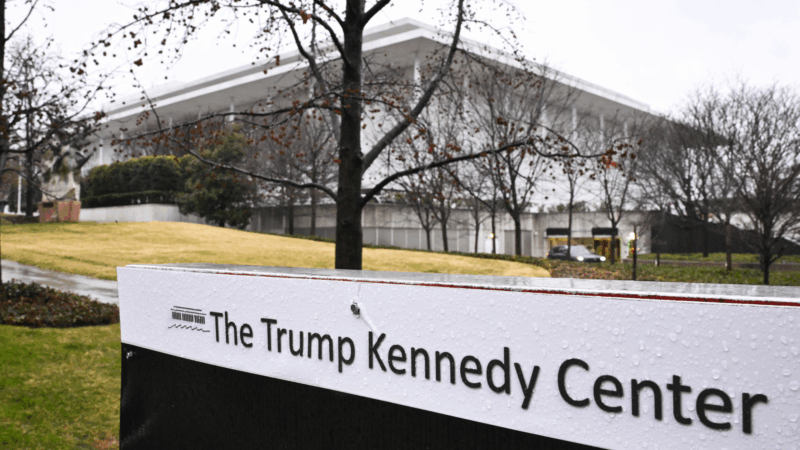Birmingham’s Broken Parking Meters
Depending on where you are in Birmingham, you could pay around two dollars to park for two hours on a city street. Or – you may not pay at all.
Birmingham has more than 5,000 parking meters – many are broken, a handful take credit cards, and some just take your money while ticking away the time. But with more restaurants, businesses and residents returning to the city center once again, those steel gray meters with an appetite for quarters are stirring concerns among those who live and work downtown.
Sheryl Daniels and her daughter, Monica, have just parked downtown when Monica takes out her phone and snaps a picture of the parking meter…why?
“Cause when I put the two dollars in there it didn’t work,’ Monica explains. “And I don’t need a ticket.”
Sheryl, the mom, says broken meters are a constant.
“You know the last three times I’ve parked in downtown Birmingham, the meters have been broken.” Daniels says, she drives downtown regularly, and broken parking meters “put a sour taste in your mouth.”
The whole point of a parking meter is rotation; people park and an hour or so later leave. And Birmingham’s banking on it. The city’s budget projects $2.2 million from the meters this fiscal year, even though the city collected less than half that last year.
But according to many residents WBHM spoke to for this story, people in this city love to park on the street for hours, sometimes all day.
Even Birmingham’s head of traffic engineering, Greg Dawkins.
“I will drive a block or two looking for a space,” Dawkins says. “Then if I can’t find one, I’ll go into a deck. But I would rather park on the street as well.”
Dawkins is in charge of all the parking meters in Birmingham. He says most meters aren’t broken. Some are full of change. Some operate on batteries that have run out. Plus, Dawkins says, there’s vandalism. So, the city is slowly installing vandal resistant meters.
“The actual broken meters there are fewer and fewer of those everyday, and once the meter collection gets taken care of,” Dawkins says, “we hope we’ve gone over that hump.”
However, Councilor Kim Rafferty, who chairs the city council’s transportation committee, respectfully disagrees. She says, yes, many meters are broken.
“Why aren’t we fixing it?” Rafferty questions, “because the people that should have cared don’t. But all of us are tired of making excuses and dealing with shortfalls.”
The solution, Rafferty says, requires money, which could come from parking tickets.
Dawkins’ department writes over $1 million in tickets a year. Leah Hamby knows all about that.
“In one year’s time,” Hamby says, “I would estimate that I have had 20 to 25 parking tickets.”
Hamby works and goes to concerts downtown. She’s no miscreant – she says she loves Birmingham. But like a lot of people, Hamby says, she’s stopped putting money in meters or paying her parking tickets, because it all feels futile.
“The first ticket you put in the glove box and you are like, ‘I gotta remember to pay that,’” Hamby rationalizes. ”Then the second and third tickets come before the payment of the first ticket is ensured, so then all of a sudden, you are like Lucy in the chocolate factory and there are just tickets tickets tickets tickets. And there’s just no hope.”
Plus, Hamby’s never paid her tickets and nothing’s ever happened.
But Judge Andra Sparks, who presides over the municipal court, warns, “This is very serious, this is serious. I wouldn’t count on getting away with it forever, if you think you are.”
Since July, Birmingham has issued over 46,000 tickets, but only a little more than half have been paid. In 2014, the court held a two month amnesty program where people could bring in canned food and have their tickets forgiven. Sparks says over 1,000 tickets were taken care of. But there are still thousands to collect.
“It’s not just like we are going to say, ‘Oh well.’ We are going to look at whatever means necessary to take care of it,” Sparks says.
But currently, there is little the court can do – short of full-on prosecution – to make someone pay a parking ticket. The city used to partner with a law firm that would go after unpaid tickets, but that was cut years ago. Sparks would like to see more teeth in the law – like booting cars or not allowing people with tons of tickets to renew their driver’s license – but currently no such measure has been proposed by the city council.
Sparks says parking tickets are about more than just a fine.
“You know, it is not just money,” Sparks clarifies, “it’s also what you and I depend on most, and that’s good order and discipline where we live, right?”
Most people like order and discipline. But they also really like what is in essence, free parking downtown.

Want to hear and read even more about Birmingham’s parking issues? Check out this story from our media partners at WELD for Birmingham. WELD reporter Cody Owen asks is the current system of street side parking sustainable or is Birmingham headed for a parking crisis? “Many seem to believe that parking tickets are nothing more than a momentary nuisance — they don’t need to be paid,” writes Owen.
Minnesota Gov. Tim Walz, Minneapolis Mayor Jacob Frey have been subpoenaed by the DOJ
The Minnesota attorney general and St. Paul mayor have also been subpoenaed as local, state and federal officials have clashed in the aftermath of the shooting of Renee Good by an ICE agent.
ASEAN won’t endorse election in military-ruled Myanmar, Malaysia says
Malaysia's foreign minister Mohamad Hasan cited concerns over the lack of inclusive and free participation.
‘The miracle’: A 6-year-old walked away from the train wreck that killed her family
Her parents, brother and cousin were killed in the collision, but the girl was found walking barefoot on the tracks. She's being cared for by grandparents after receiving three stitches in her head.
Trump says U.K. return of Chagos Islands to Mauritius is a reason to acquire Greenland
The president previously supported Britain's agreement to hand back sovereignty of the Indian Ocean archipelago, where the U.K. continues to lease the U.S.-U.K. Diego Garcia military base.
Here’s who’s canceled their Kennedy Center performances since Trump took over
The Martha Graham Dance Company is just the latest to say they will no longer perform at the Kennedy Center since Trump took over last year.
An Alabama mayor signed an NDA with a data center developer. Read it here.
The non-disclosure agreement was a major sticking point in a lively town hall that featured city officials, data center representatives and more than a hundred frustrated residents.







